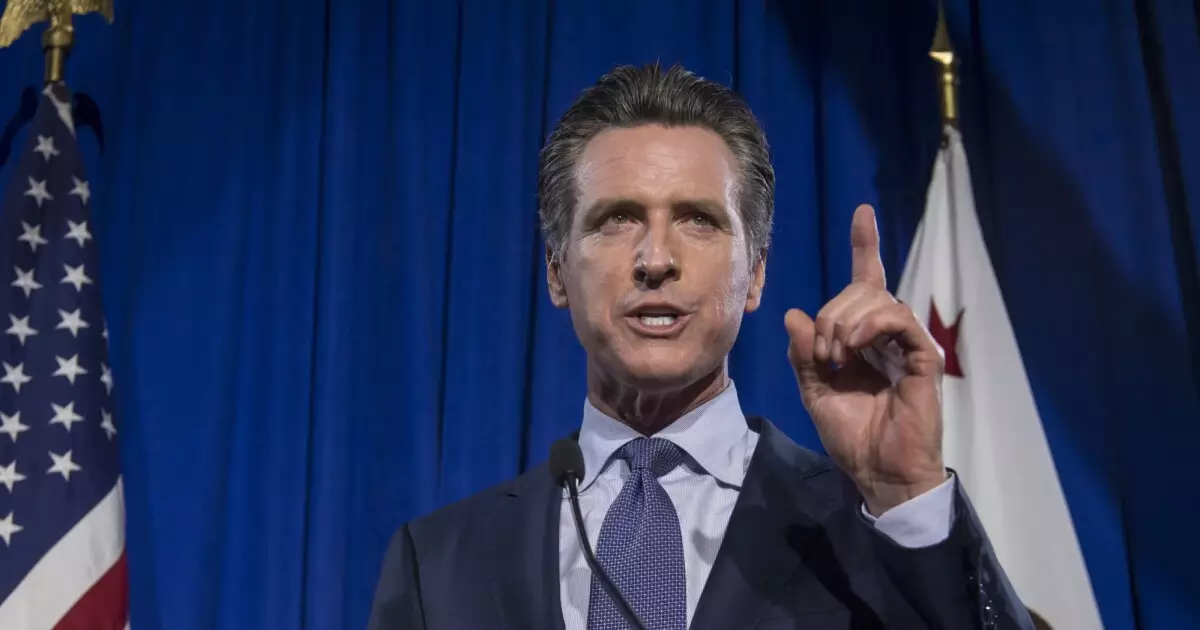Proposition 98 is a pivotal legislative measure that mandates California’s government allocate a minimum percentage of its budget to education annually. Enacted to stabilize funding for public schools and community colleges, this constitutional guarantee plays a vital role in ensuring schools receive adequate financial resources to function effectively. However, the California School Boards Association (CSBA) has recently voiced serious concerns regarding alleged violations of this proposition in the state’s budget, particularly through the enactment of the 2024 Education Omnibus Budget Trailer Bill. The ongoing legal challenge poses significant questions about the integrity of California’s commitment to education funding.
The lawsuit filed by CSBA’s Education Legal Alliance claims that the trailer bill undermines the foundational intent of Proposition 98, directly violating the state constitution. The association argues that it is crucial to safeguard both the established funding structure and the resources indispensable for California’s students. Albert Gonzalez, the president of the CSBA, emphasized that the constitutional mandates cannot simply be manipulated or ignored for the sake of convenience in fiscal management. He stated, “California’s electorate passed Proposition 98 to provide a stable and predictable source of funding for public schools and community colleges.” This assertion underscores the CSBA’s determination to uphold voters’ rights and prevent government overreach in budgetary processes.
In response to the allegations, representatives from Governor Gavin Newsom’s administration and the Department of Finance have rebuffed the claims made by the CSBA. The Department of Finance issued a detailed letter rejecting the association’s arguments, affirming the constitutionality of its actions surrounding the budget. H.D. Palmer, a spokesman for the Department of Finance, expressed confidence that the courts would validate the state’s determinations. This assertion indicates a broader conflict between the state government’s interpretation of budgetary law and the concerns raised by educational advocates.
The debate brings to light the tensions between fiscal sustainability and educational mandates, as the state grapples with budgetary constraints. The government’s borrowing from the general fund to address budget shortfalls exacerbates worries about the stability and predictability that Proposition 98 was designed to ensure. Critics argue that such financial maneuvers may set dangerous precedents that could jeopardize future funding for schools.
The primary contention of the CSBA’s lawsuit revolves around the ways in which the trailer bill could reduce the minimum funding guarantees stipulated by Proposition 98. Specifically, the bill excludes certain funds from being counted in the overall calculations necessary to establish the funding threshold for future years. This approach raises alarming concerns that it could lead to a significant decline in funding for school districts, county offices of education, and community colleges, impacting the educational landscape across California.
The CSBA argues that decisions made in the drafting of the state budget from its inception through to its passing show a concerted effort to skirt the provisions of Proposition 98. The organization’s advocacy has led to some adjustments in previous iterations of the budget but has not deterred the state’s overall strategy from what they perceive as a budget-contingent manipulation of educational funding.
While the lawsuit may not immediately affect the currently approved fiscal year 2024-25 budget, its long-term repercussions could be severe. The CSBA’s hope is that the legal challenges will ensure a return to robust adherence to Proposition 98’s mandates, reflecting both voters’ intentions and the educational system’s needs. Furthermore, they underscore the potential risks of allowing future governments and legislatures to employ similar maneuvers to circumvent the established funding guarantees.
Proposition 98 stands as a testament to the recognized need for stable public education funding, one that has withstood various economic challenges for more than three decades. The current legal battle illustrates the ongoing struggle between budgetary prudence and unwavering commitment to educational resource allocation.
The confrontation between the CSBA and the state of California is emblematic of broader issues surrounding educational funding and governance. As the lawsuit progresses, it serves not only as a specific challenge to the 2024 Education Omnibus Budget Trailer Bill but also as a significant legal test of Proposition 98’s resilience. The outcome may have lasting implications for how California navigates educational funding amid financial uncertainties, compelling leaders to reassess the weight of constitutional mandates in shaping the state’s future educational priorities. Such decisions will inevitably impact the well-being of students and the quality of education they receive in an increasingly complex fiscal environment.

